[ad_1]
This post may contain affiliate links. For more information, see our privacy policy.
A cross between the BEST cheesecake and your favorite buttery vanilla cake (with an added crisp, crunchy sugar exterior), this Sugar-Glazed Ricotta Bundt Cake is FABULOUSLY DELICIOUS! Add the fact that it’s ridiculously easy to make, with just one bowl and no mixer and you’ve got a tried and true winner!
“Wow!” That’s what Scott and I said when we took the first bite of this Sugar-Glazed Ricotta Bundt Cake. And every bite after that elicited the same response – from everyone who’s tried it! With a moist, yet tender crumb, lots of buttery vanilla flavor and a fabulously crisp, crunchy crust, it’s definitely an unforgettable “WOW” cake!
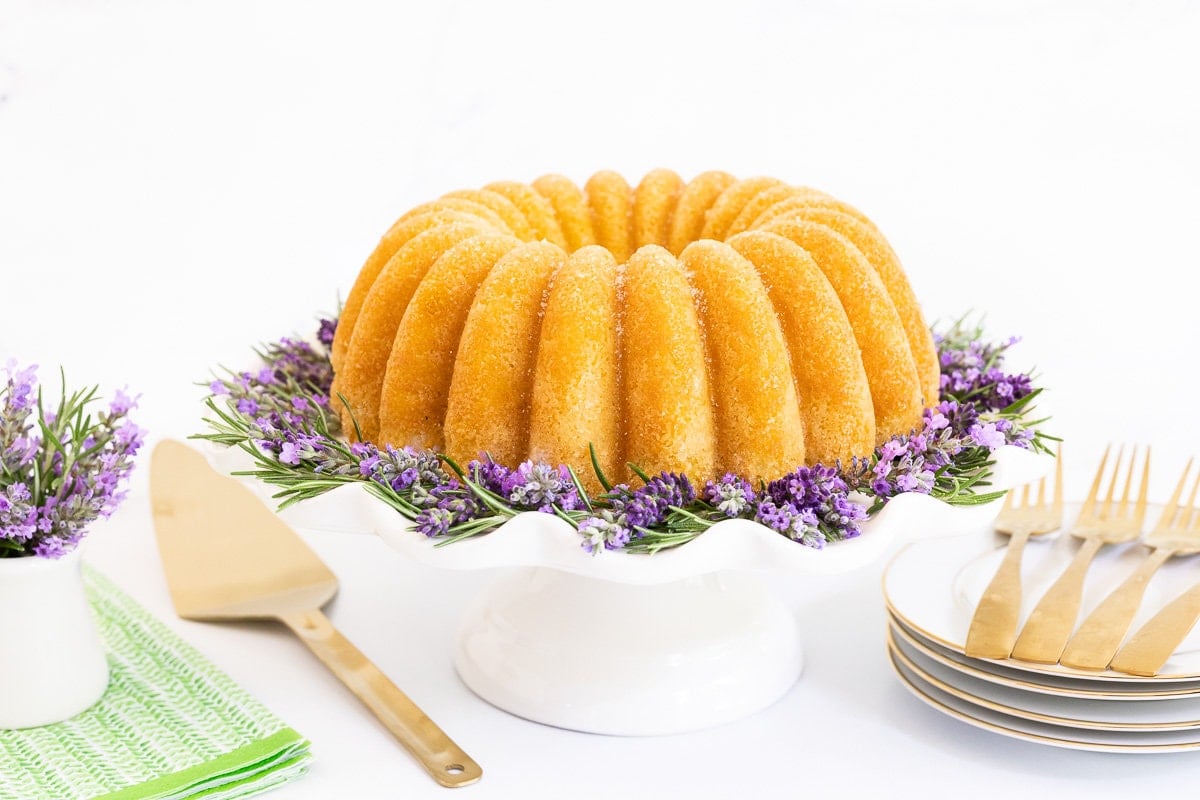
Ricotta, a star ingredient, not just for lasagna!
As the name suggests there’s ricotta cheese in this recipe along with buttermilk, eggs, sugar, vanilla, baking powder, salt and all-purpose flour. To me, ricotta cheese (although often used in savory recipes like lasagna, manicotti and involtini) is a magical ingredient for cakes and baked goods. Ricotta is creamy and mildly sweet and it adds a fluffy, moist texture to this Sugar-Glazed Ricotta Bundt Cake.
As I mentioned in the introduction, this cake tastes like a combination of a really good vanilla cake and a fabulous cheesecake – it’s sweet, buttery, tender yet cheesecakey moist and slightly dense, all at the same time! The crisp, sugar-glazed crust? Well, it’s just the crème de la crème!
Sugar-Glazed
Yes, one of the outstanding things about this Sugar-Glazed Ricotta Bundt Cake is the sweet, crisp, crunchy exterior that pairs so deliciously with the buttery, moist interior! How do you get a “sweet, crisp, crunchy exterior”?
So easy! Actually ridiculously easy!
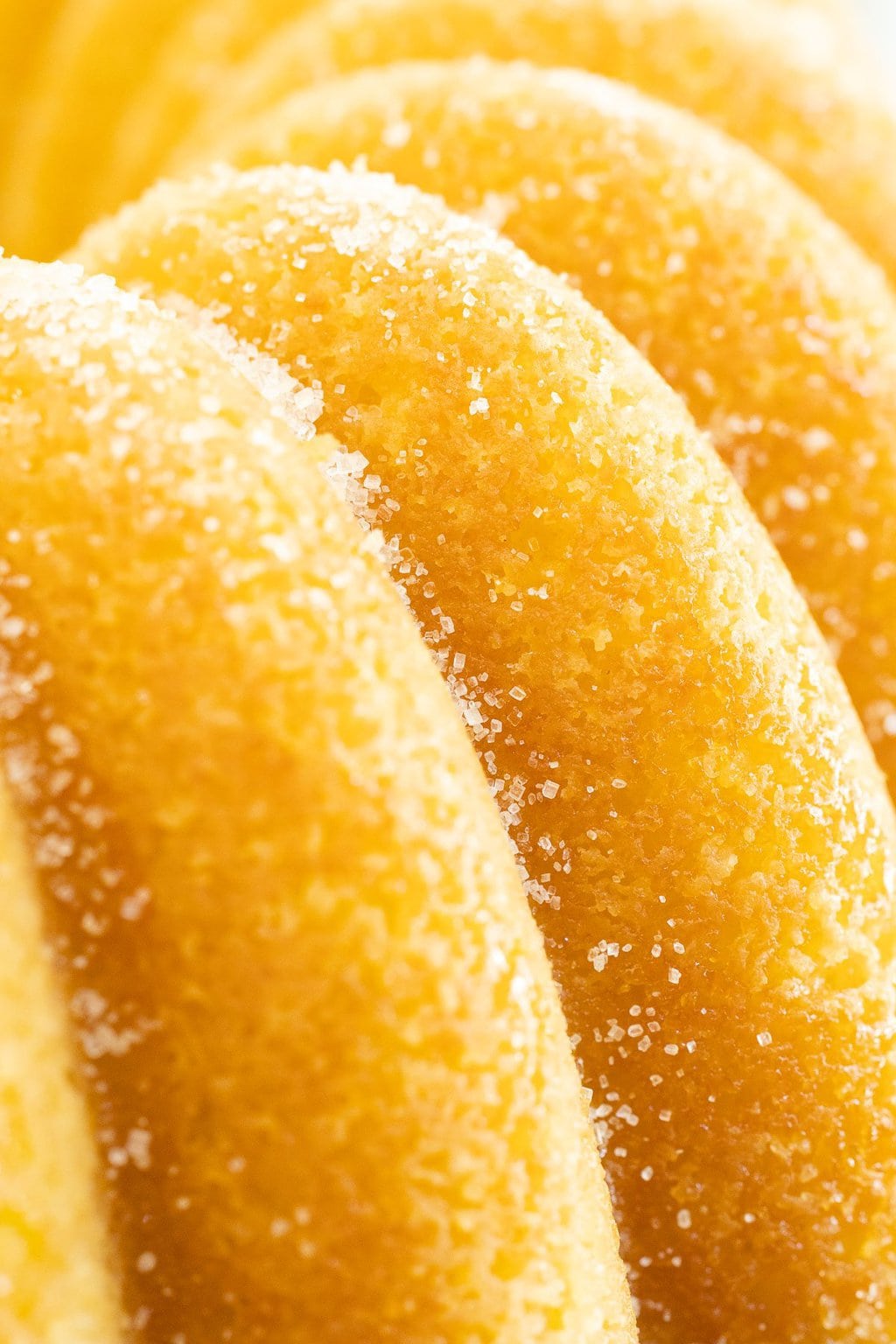
This is how it works. To prep the pan for baking, spray it with baking spray, a non-stick spray that combines shortening and flour, kind of like the classic method of greasing a pan with shortening and then dusting with flour. After all the cracks and crevices of the bundt pan are nicely coated with baking spray, simply dust the pan with a coat of sugar. I like to use cane sugar, which is a little coarser than granulated sugar but either will work.
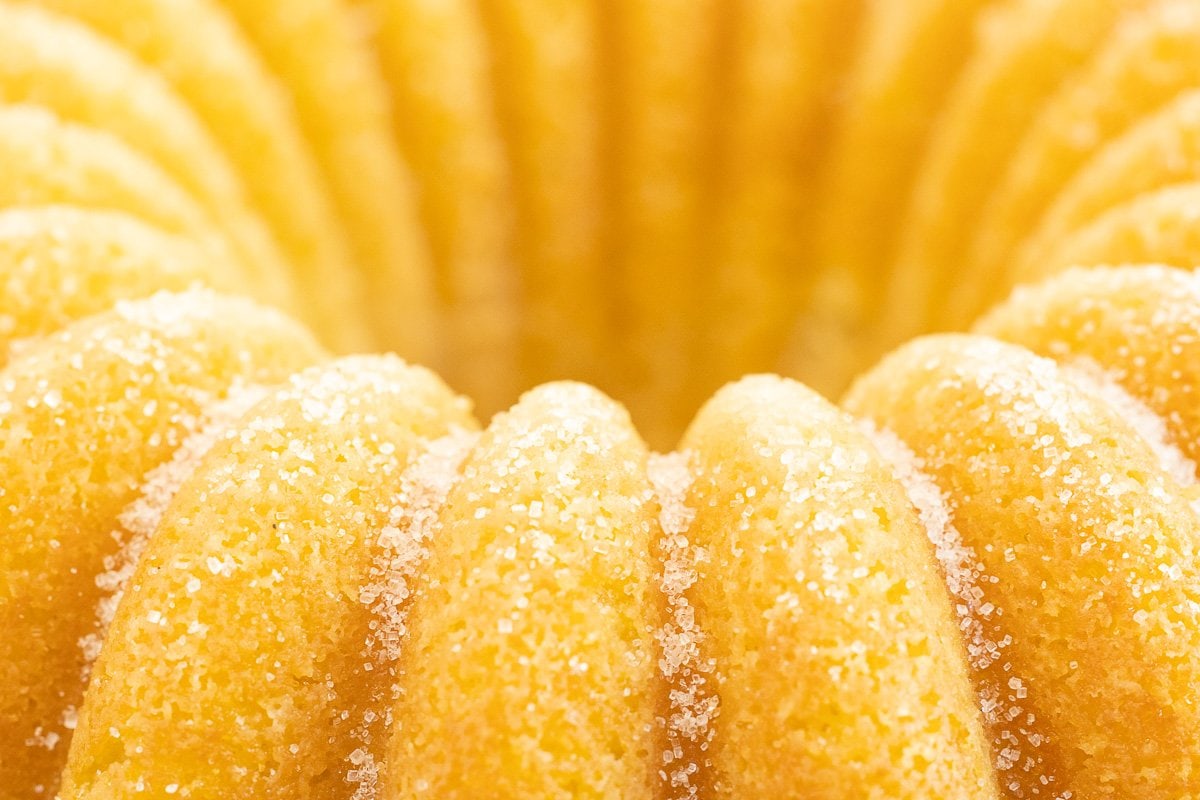
When the cake emerges from the pan after its stint in the oven, voila! A crisp, sweet, golden exterior that gives a little delicious “crunch” with every bite!
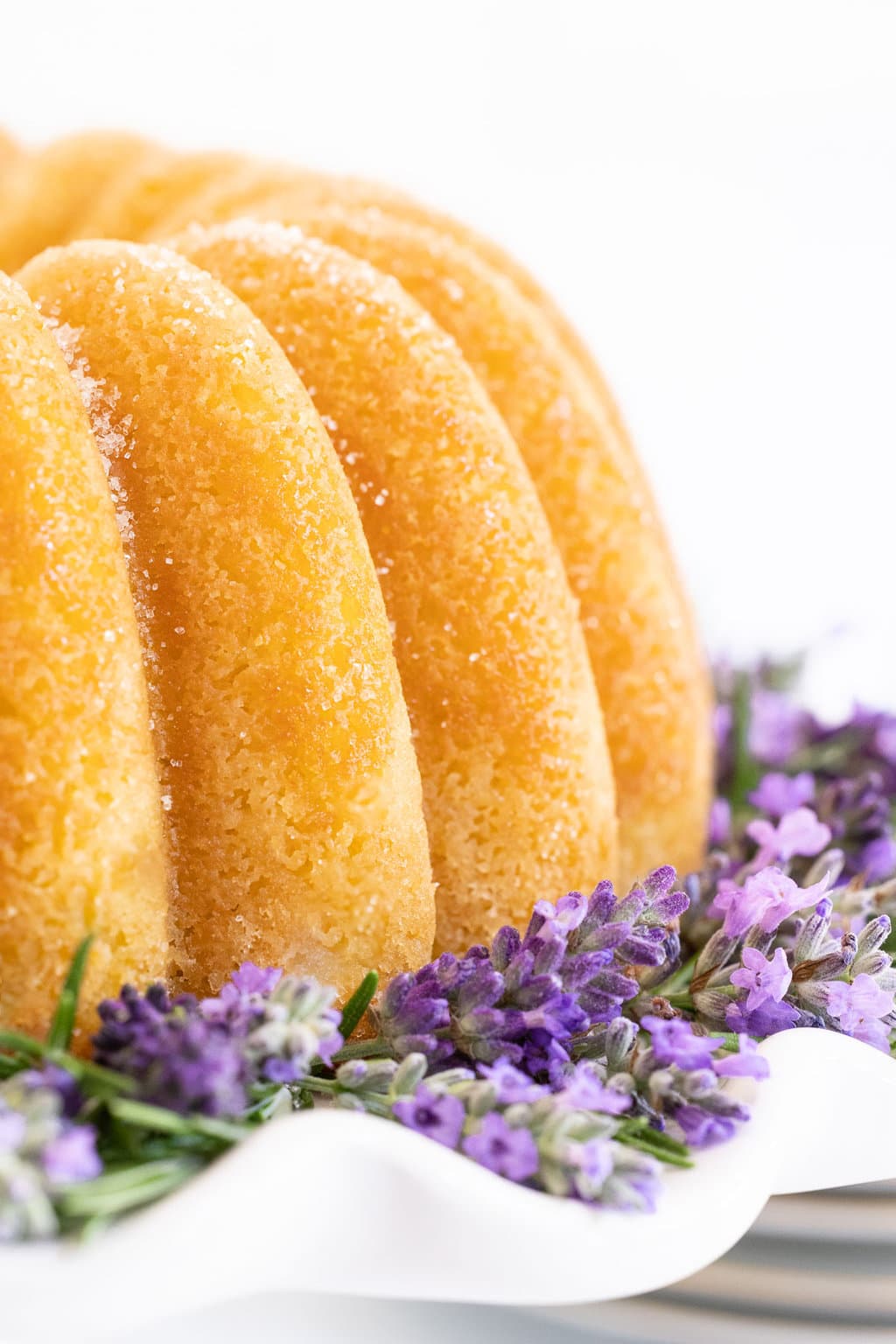
Ridiculously Easy
And speaking of ridiculously easy, if you’ve been following The Café for any length of time, you know all about our Ridiculously Easy recipes so you might want to just skip ahead. But for our newer readers, we have a whole collection of recipes that we call Ridiculously Easy. You can read in detail about these recipes in this post but my condensed explanation is that they are the recipes that “make you look like a kitchen rock star with minimal effort on your part”.
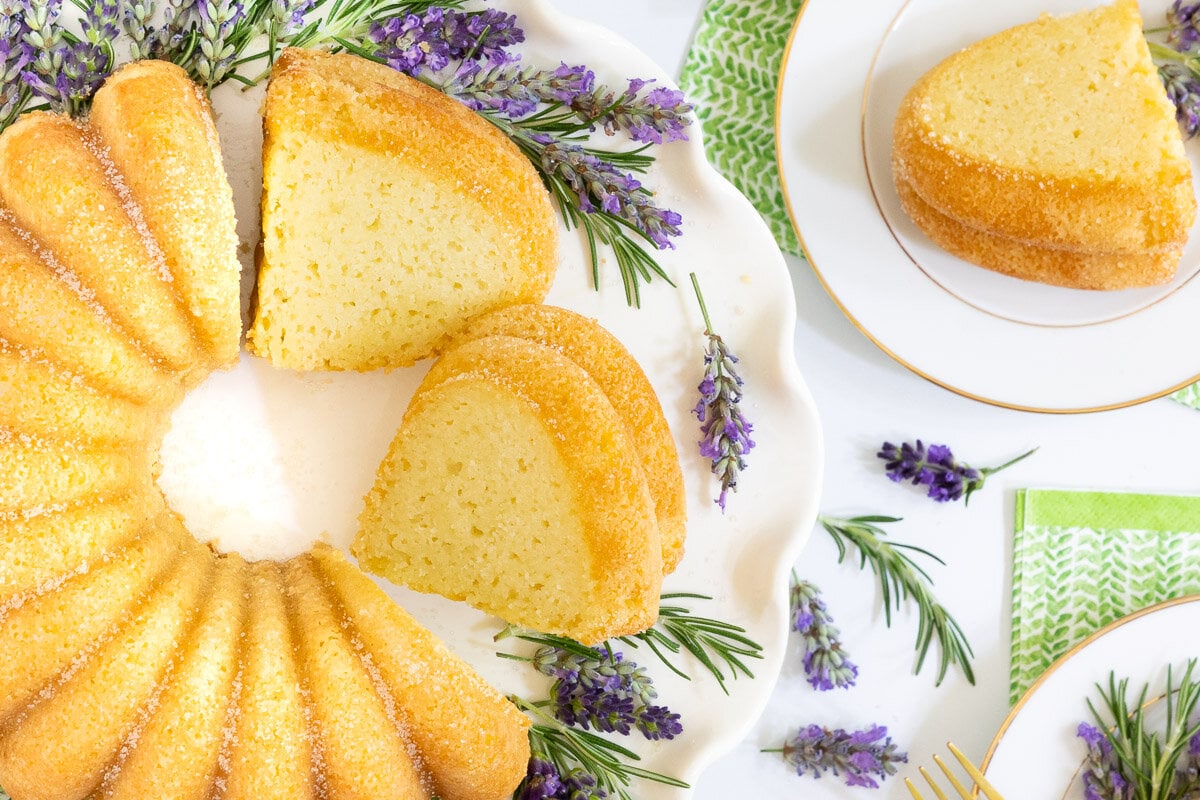
This Sugar-Glazed Ricotta Bundt Cake definitely falls into that coveted collection!
I hope I’ve convinced you that this Sugar-Glazed Ricotta Bundt Cake is most definitely worth making. It won’t require much hands-on time and it will, without exception, elicit lots of “WOWS”! Try it! You’ll understand just what I’m talking about!
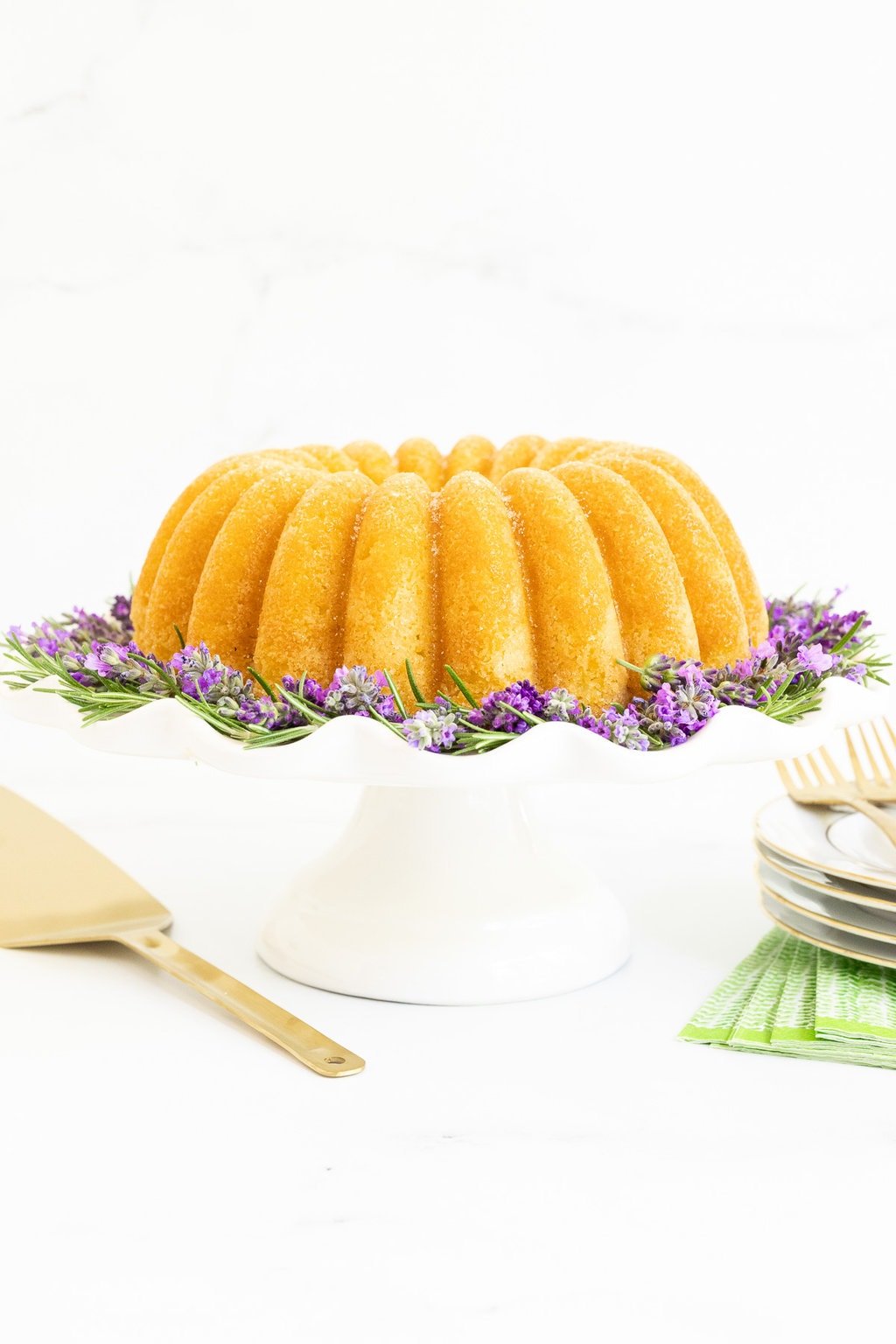
Café Tips for making this Sugar-Glazed Ricotta Bundt Cake
- This recipe calls for ricotta cheese. You can find ricotta in the dairy aisle, usually right near the cottage cheese. It usually comes in two varieties, skim and whole milk. I prefer whole milk ricotta cheese for this Sugar-Glazed Ricotta Bundt Cake. After all, if you’re going to enjoy cake, go for the gold (and perhaps just have a smaller piece) but if you’re really into counting calories, the skim variety will also work for this Sugar-Glazed Ricotta Bundt Cake.
- I like to use cane sugar for dusting the cake pan as it’s slightly coarser than regular granulated sugar and it gives a little extra crunch. You can find cane sugar in the same section as granulated sugar at the grocery store. It’s also nice for cookies that are rolled in sugar before baking. This cake will also work fine with regular granulated sugar if you don’t have cane sugar and will still have a crunchy exterior.
- If you don’t have baking spray, grease your pan will with shortening then proceed as directed to sprinkle with sugar. You can also use butter but it will produce a deeper gold crust.
- A lot of readers have asked, what type of butter I use for baking recipes. Contrary to popular opinion and classic baking advice, I always use salted butter in my cooking and baking. I just think it’s tastier for enjoying on its own and I don’t like having to stock two different types of butter. I’ve always preferred salted butter to unsalted and thought for a long time that I was a lone ranger in the baking world. But a while back I read an article by Christopher Kimball, the legendary founder of Cook’s Illustrated and, more recently, Milk Street. I thought he explained it well when a reader asked why he always used salted butter:
“We are different from what you will usually hear from other cooking professionals. Here at Milk Street, we experimented with using both salted and unsalted butter in both savory and baking recipes. The overall opinion was that the small amount of salt in the butter was undetectable in the recipes. Since salted butter has the advantage of extending the butter’s shelf life, it also makes it a good choice for home cooks who may not use butter all that often. Even though conventional wisdom is to use unsalted we have decided it really doesn’t make a difference.
- All that to say, if you tend to purchase unsalted butter, it will be fine. You may need to just add a little pinch of extra salt.
- Some readers have asked how I measure flour. There are several different techniques, so I thought that I’d take a minute to discuss this. Years ago (like 100 years ago, when I was learning to cook) the universal method was to scoop up the flour, tap the cup a bit (to remove any air pockets) and then level the surface with a knife. In later years, the “correct” method changed to scooping up the flour with a separate scoop, filling the measuring cup with flour to overflowing and then leveling the surface with a knife. The reason for this change in techniques was so the flour wouldn’t be so compacted and result in extra flour (which could, in turn, result in inferior baked goods). Personally, I use a combination of the two methods. I use a fork or a whisk to stir and “lighten up” my flour before scooping and leveling. I find this is easier but gives similar results to the double scooping and leveling technique.
- Be sure to let the cake cool for 10 minutes before inverting. This short cooling time gives the cake time to “set” a bit so it won’t collapse or fall apart when removed from the pan.
- This recipe calls for a 10-12 cup bundt pan. I love to use this Nordic Ware Bundt Pan (pictured in the post) for this Sugar-Glazed Ricotta Bundt Cake but there are lots of options. You could also make it in a 9×5-inch loaf pan. Actually, there are lots of amazing pans you could use for this cake. I love Nordic Ware Bundt pans. This is not a sponsored post but they’re such great quality and seem to last forever (despite lots of use like they get here). I just ordered this beautiful Nordic Ware Bundt Pan for myself (I’m sure you’ll see it in future posts). There are so many options to choose from with these Nordic Ware pans. If your Bundt pan has a larger capacity than 10 cups, be aware that the finished product will be lower and smaller than the cake pictured in this post.
- I absolutely love to decorate cakes with fresh edible flours. Although we don’t generally eat the flowers, I like to use blossoms that aren’t harmful since they will be touching the cake. I used lavender and rosemary for this Sugar-Glazed Ricotta Bundt Cake. You can find more about decorating with fresh herbs and flowers along with a list of common edible flowers in this post.
Thought for the day:
Let us then with confidence
draw near to the throne of grace,
that we may receive mercy
and find grace to help in time of need.
Hebrews 4:16
What we’re listening to for inspiration:
I Need Thee Every Hour
If you enjoy this recipe, please come back and leave a star rating and review! It’s so helpful to other readers to hear your results, adaptations and ideas for variations.
Ridiculously Easy Sugar-Glazed Riccotta Bundt Cake
A cross between the BEST cheesecake and your favorite buttery vanilla cake (with an added crisp, crunchy sugar exterior), this Sugar-Glazed Ricotta Bundt Cake is FABULOUSLY DELICIOUS! Add the fact that it’s ridiculously easy to make, with just one bowl and no mixer and you’ve got a tried and true winner!
:

Prep Time:
20 mins
Cook Time:
40 mins
Total Time:
1 hr
Servings: 12
Calories: 321 kcal
Ingredients
For the prep:
-
¼
cup
cane sugar or granulated sugar
see Café Tips
For the cake:
-
½
cup
butter
(I used salted) -
¼
cup
extra-virgin olive oil -
2
teaspoons
vanilla extract -
¼
teaspoon
almond extract -
3
large eggs -
1
cup
whole-milk ricotta cheese -
½
cup
buttermilk -
1½
cups
granulated sugar -
2½
teaspoons
baking powder -
¾
teaspoon
kosher salt -
1 ½
cups
all purpose-flour
Instructions
For the prep:
-
Preheat the oven to 350ºF. Spray a 10-12 cup Bundt pan generously with baking spray, making sure to cover all of the cracks and crevices including the inside of the center core. If there is spray pooling at the bottom of the pan, wipe out any excess with a piece of paper toweling.
-
Sprinkle a quarter cup of sugar onto the greased surfaces and tip and tilt the pan to coat everything with the sugar (I like to do this over the kitchen sink.) Discard any excess sugar left in the pan.
For the cake:
-
In a microwave-safe measuring cup or bowl., melt the butter in the microwave. Add the olive oil, vanilla and almond extracts. Set aside.
-
In a medium-size bowl, whisk together the eggs, ricotta, and buttermilk until well combined.
-
Add the sugar and whisk again, then add the butter/oil mixture and whisk until well combined.
-
Sprinkle the baking powder and salt over the top of the batter and stir to incorporate.
-
Lastly, fold in the flour and stir just until the batter is smooth and lump-free.
-
Transfer the batter to the prepared pan and smooth the top with a spatula or the back of a spoon, making sure it goes into all the little Bundt pan grooves.
-
. Bake until the cake is golden brown and a toothpick inserted into the center comes out clean, 40–50 minutes. The best way to tell if a cake is done is to use an instant thermometer. The temperature in the middle of the cake should read 200-205˚F.
To finish:
-
Transfer the cake to a cooling rack and allow it to cool for 10 minutes in the pan, then check the edges of the cake. If you see any areas that seem to be adhering to the pan, use a small, thin-bladed knife to gently loosen these areas.
-
Carefully invert the cake onto the cooling rack, giving it a little shake to release it. Lift the pan and sprinkle the top of the cake with a little extra sugar, if desired. Allow the cake to cool for an hour before slicing. ENJOY and wait for the WOWS!
Recipe Notes
See Café Tips above in the post for more detailed instructions and tips to ensure success.
If you prefer to use Metric measurements there is a button in each of our recipes, right above the word “Instructions”. Just click that button to toggle to grams, milliliters, etc. If you ever come across one of our recipes that doesn’t have the Metric conversion (some of the older recipes may not), feel free to leave a comment and I will add it.
Adapted from Epicurious. https://www.epicurious.com
Calories 321kcal
Fat 16g
Saturated fat 8g
Trans fat 0.3g
Polyunsaturated fat 1g
Monounsaturated fat 7g
Cholesterol 73mg
Sodium 251mg
Potassium 155mg
Carbohydrates 39g
Fiber 0.4g
Sugar 26g
Protein 6g
Vitamin A 403%
Calcium 101%
Iron 1%
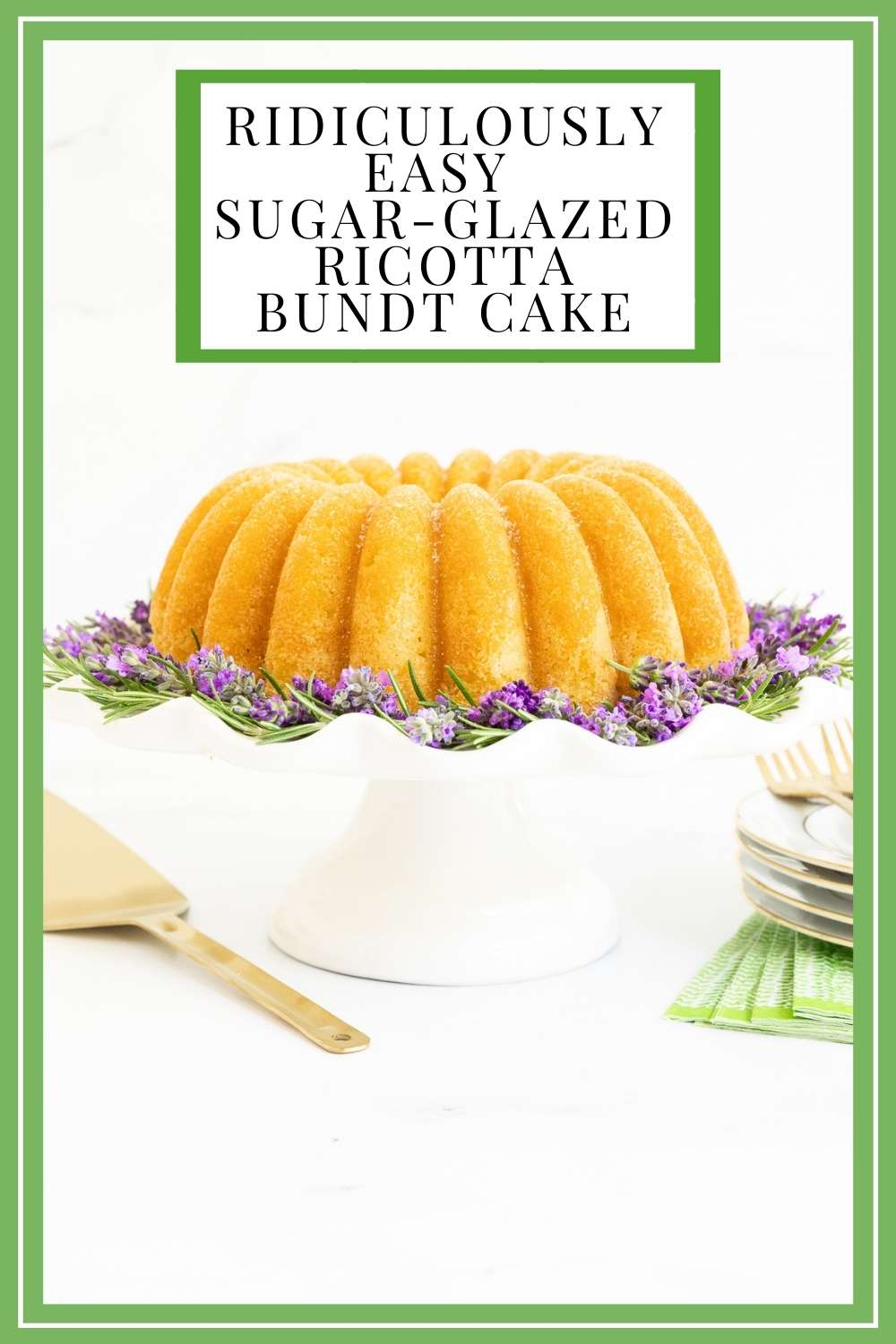
[ad_2]
Source link

